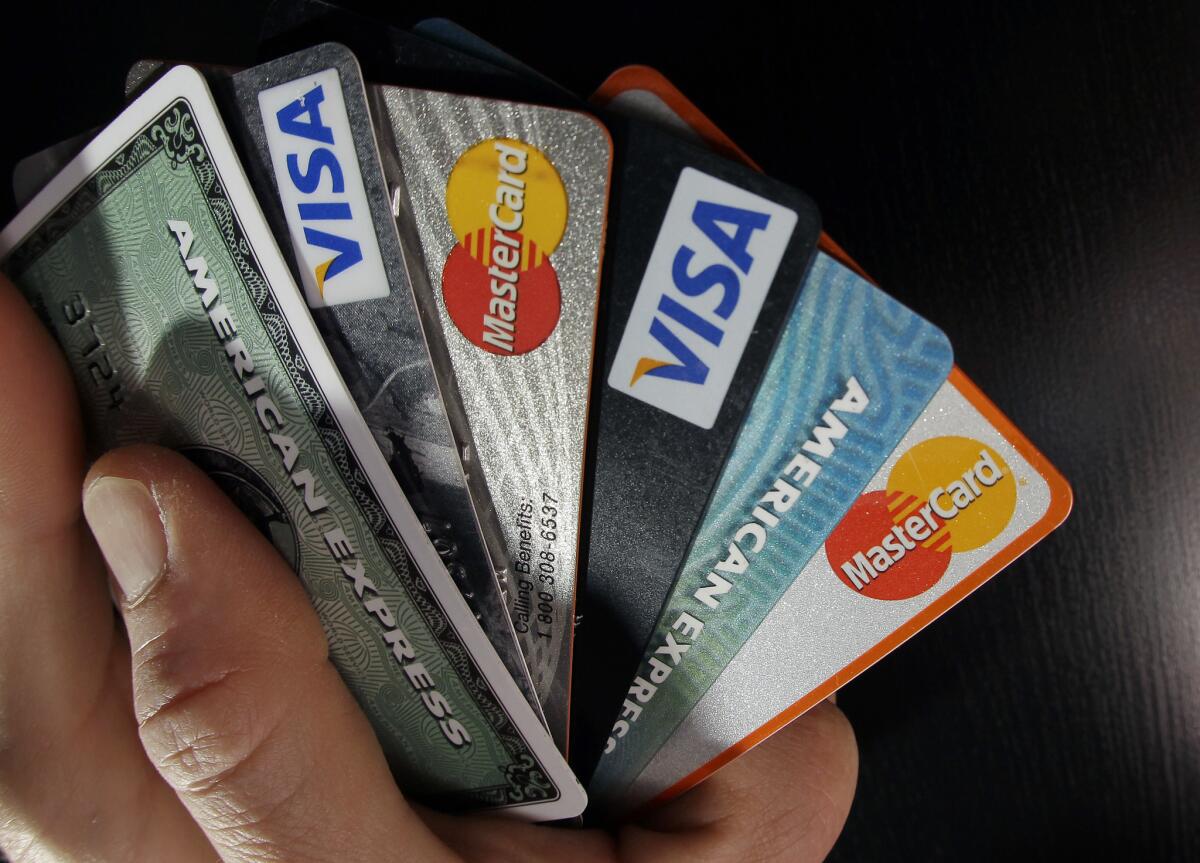They paid off the mortgage. Then the credit score fell. Can that be right?

- Share via
Dear Liz: My wife and I recently paid off our mortgage. We have no other debt. Soon after, I received a message from Experian that my FICO score, which has been perfect for quite a while, was reduced by 31 points. What justifies such action, and what do I need to do to bring up my score?
Answer: Credit scores were never intended to be a measure of anyone’s financial health. Instead, they were created to help lenders gauge the risk that an applicant would default on a loan or credit card debt.
Having a mix of types of credit, including installment loans (such as a mortgage) and revolving accounts (such as credit cards), generally helps your credit score. Because the mortgage was your only installment loan, that could have led to a larger-than-normal effect on your scores.
If your previous score was “perfect,” or 850 on the FICO scale, then there’s nothing you need to do. Once your scores are over about 760, you’re getting the best rates and terms, and there’s typically no other benefit to shoot for, other than bragging rights.
Refinancing brings tax questions
Dear Liz: I recently refinanced my house and got $9,400 cash back. I also received a $2,400 escrow check from my previous mortgage lender. Is this money taxable? Should I put away a certain percentage of it to pay those taxes? My plan is just to put it back into household repairs (fireplace, painting, etc.).
Answer: You got cash back because you took out a larger loan than the one you previously had. You have to pay that money back, so it’s not taxable income. The escrow check represents a refund of money you’d already paid to the first lender. You don’t get taxed on that, either.
Mortgage rates are at historic lows, so there’s money to be saved there by buying a home now. But when it comes to the home’s sales price, don’t expect a discount because of the economic downturn.
His new job won’t hurt future Social Security benefits
Dear Liz: I am 67 and currently receiving a Social Security survivor’s benefit based on my deceased spouse’s work record. At 70, I plan to switch to my own Social Security retirement benefit. I’ve been offered a part-time position with a charity that I’d like to accept. However, I am concerned about how it will affect my Social Security. If I show earned income this year, it will knock off one of my 35 highest-earning years. If I stay in this position for many years, as I hope to do, each year could knock off a high-earning year. I’ve offered to do the job for free, but that is not an option for them. My high-earning years are in the $55,000 range, while this job pays maybe $6,000 a year. Am I wrong? Is not working reducing my benefit, and should I switch to my Social Security now?
Answer: Social Security can be surprisingly complicated, which is why it’s so easy to get the facts wrong and make unfortunate choices.
“Highest earning” means just that. A current year can’t “knock off” a previous year unless you make more than you did in that prior year. Only if you make more than one of those prior years will the older year be dropped from the formula. And if that happens, your benefit would go up, not down.
So take the job, enjoy giving back to your community, and allow your own benefit to continue growing by 8% each year until it maxes out at age 70.
Your prized collection isn’t going to sell itself
Dear Liz: I am in the process of winding down my duties as executor of the estate of a 91-year-old gentleman who, like the reader who wrote to you, had a prized collection. I had repeatedly urged him to dispose of his prized things. I reasoned that because he was retired and had the time, and because he knew the story behind his prized items, he was in a far better position to find a buyer than I would ever be. (Knowing the provenance of the item is important because people purchase the story, not just the item itself.) He did dispose of some of the more valuable things and actually got some good cash, which he was able to enjoy. But he didn’t follow my advice completely, which meant that when he died, I had to deal with his remaining prized collectibles.
My suggestion to any older person who has collectibles is: Don’t wait to dispose of items that have market value. If you’re retired and have the time, sell the items yourself! If you don’t need the cash, deposit the money into the bank account that will pass to your heirs in due course. Don’t burden your executor — who is probably still working full time and who has bigger things to deal with, like your house, car and investment accounts — with disposing of your collectibles.
Answer: Obviously, parting with collectibles can be tough. The alternative, though, could be that precious items wind up in a yard sale or a dumpster. Collectors who sell get the satisfaction of knowing that the items are going to people who really want them.
Liz Weston, Certified Financial Planner, is a personal finance columnist for NerdWallet. Questions may be sent to her at 3940 Laurel Canyon, No. 238, Studio City, CA 91604, or by using the “Contact” form at asklizweston.com.
More to Read
Inside the business of entertainment
The Wide Shot brings you news, analysis and insights on everything from streaming wars to production — and what it all means for the future.
You may occasionally receive promotional content from the Los Angeles Times.











